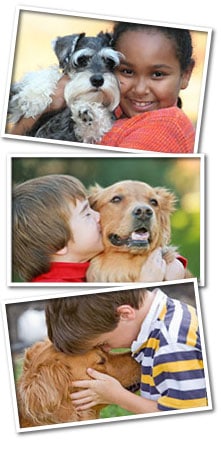Apples, salmon, pumpkin, beans, yogurt… people foods that are safe for your dog to eat. As a responsible and informed dog lover, you probably know that too much “people food” can make your dog ill or overweight, but there are some foods that can be safely added to your dog’s meals in moderation to give a nutritional boost to their diet and add a bit of variety to her food bowl. Just remember: any additions to your dog’s meals shouldn’t comprise more than 25 percent of her weekly caloric requirement.
Yogurt is a good source of calcium and protein. When picking yogurt, pick one that has lived active bacteria and no sugars or artificial sweeteners. The active bacteria may act as probiotics. If your pooch is pudgy, make sure that you pick fat-free yogurt but not one that contains fat. Frozen yogurt is a nice summer treat for dogs.
Salmon is a fatty fish which is also a good source of omega- 3 fatty acids. These fats support the immune system and can be beneficial for skin and coat health. There has also been some indication that they may benefit dogs with allergies. You can feed salmon or salmon oil.
Sweet potatoes are another source of dietary fiber and contain vitamin B6, vitamin C, beta carotene, and manganese. Sweet potatoes are great sliced and dehydrated as a chewy treat for your dog.
Green beans are a good source of plant fiber, vitamin K, vitamin C, and manganese. If your dog has a tendency to put on weight, then replacing some of her regular food with green beans is a great low-calorie way to fill her up and help her maintain a healthy weight. Many dogs enjoy green beans frozen.
Eggs are a great source of very digestible protein, riboflavin, and selenium. For some dogs that are prone to digestive upset, eggs can give them a little protein boost. Adding eggs to your dog’s food is a healthy treat. Make sure to use cooked whole egg, as raw egg whites can cause biotin deficiency.
Apples are wonderful crunchy treats for your dog. Apples with the skin on are full of plant chemicals that are thought to be protective against some types of cancer in humans. They are a source of vitamins A and C and fiber. Apple seeds, however, contain cyanide so your dog should not be allowed to eat the core.

